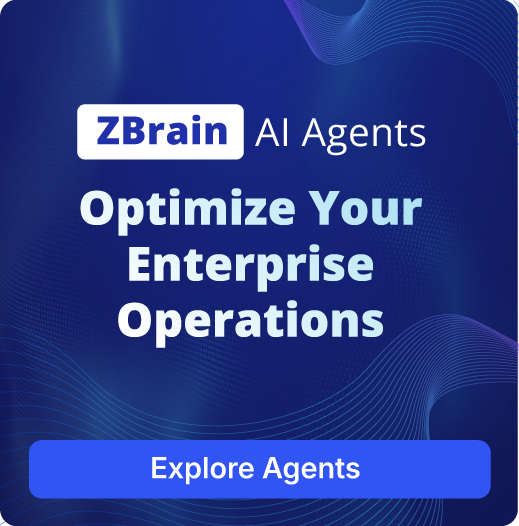Accuracy
TBD
Speed
TBD
Input Data Set
Sample of data set required for Service Policy Decision Intelligence Agent:
TO: Policy Approval Committee FROM: Sarah Jenkins, Director of Service Strategy DATE: 2023-10-26 SUBJECT: Submission for Review: New 'Priority Plus' Customer Support Policy (Draft v2.1)
1. Policy for Review:
- Policy ID: CSP-2023-017
- Policy Name: Priority Plus Customer Support Policy
- Proposed Change Summary: Introduction of a new, premium support tier for enterprise clients. This policy defines a guaranteed 15-minute first-response SLA, dedicated account managers, and 24/7 technical support access. This tier will replace the existing ad-hoc "Gold Support" offering, which lacks formal SLAs.
2. Core Policy Draft Excerpts (v2.1):
- Section 3.1 (SLA Commitment): "All support requests submitted by clients enrolled in the Priority Plus program shall receive an initial human-led response within fifteen (15) minutes of receipt."
- Section 4.2 (Dedicated Personnel): "Each Priority Plus client will be assigned a dedicated Technical Account Manager (TAM) responsible for overseeing support escalations and providing proactive service reviews."
- Section 5.5 (Data Handling): "All client data accessed during a Priority Plus support incident must be handled in accordance with GDPR and CCPA standards, as outlined in Corporate Policy CP-045."
3. Attached Stakeholder Feedback:
- Alex Chen (VP, Sales): Strong support. Believes this new tier will be a key differentiator in enterprise contract negotiations. Concerned about the proposed pricing structure; wants to ensure it's competitive.
- Ben Carter (Support Team Lead): Operationally concerned. Current staffing levels may not support a 15-minute SLA consistently, especially during peak hours or holidays. Recommends a phased rollout or additional headcount.
- Priya Sharma (Finance): The projected subscription revenue is attractive, but the costs associated with hiring/training dedicated TAMs need to be carefully modeled. Requests a detailed cost-benefit analysis.
4. Target Approvers for this Submission:
- Maria Rodriguez (EVP, Customer Service)
- David Lee (Chief Compliance Officer)
Deliverable Example
Sample output delivered by the Service Policy Decision Intelligence Agent:
Executive Decision Support Brief: Policy CSP-2023-017
Policy Name: Priority Plus Customer Support Policy Analysis Date: 2023-10-26
1. Executive Summary
This proposal introduces a new premium support tier, "Priority Plus," for enterprise clients, formalizing the service offering with a guaranteed 15-minute first-response SLA and dedicated Technical Account Managers (TAMs). This initiative aims to replace the inconsistent "Gold Support" program, creating a new revenue stream and a significant competitive differentiator. Key stakeholder feedback indicates strong sales support but raises operational staffing and financial modeling concerns that require attention.
2. Impact Analysis
Based on historical data from previous service tier introductions (e.g., 'Enhanced Support' rollout in 2021), the following outcomes could be expected within 12 months of implementation:
| Metric | Predicted Change | Confidence | Supporting Data Points |
|---|---|---|---|
| Enterprise Client Churn | -8% to -12% | High | High-value clients frequently cite support responsiveness as a key factor. |
| New Enterprise Sales | +5% to +7% | Medium | Based on sales team feedback and competitive analysis. |
| Operational Support Cost | +15% to +20% | High | Driven by required hiring for TAMs and 24/7 support staff. |
| Customer Satisfaction (CSAT) | +10 points (for enrolled clients) | High | Formal SLAs historically correlate directly with improved CSAT scores. |
3. Role-Specific Risk Assessment
This assessment highlights potential risks for this policy change.
For: Maria Rodriguez (EVP, Customer Service)
- Operational Risk (High): As noted by support leadership, current staffing may be insufficient to meet the aggressive 15-minute SLA. Failure to meet this SLA would damage the premium brand promise and lead to client dissatisfaction.
- Mitigation Recommendation: Commission a detailed workforce capacity plan and consider a phased rollout, starting with a pilot group of 5-10 clients.
- Financial Risk (Medium): The increased operational cost from new hires could negatively impact departmental margins if client adoption rates are lower than projected.
- Mitigation Recommendation: Align with Finance on a final cost-benefit analysis before launch.
For: David Lee (Chief Compliance Officer)
- Data Handling Compliance Risk (Low): The policy draft correctly references existing corporate data privacy policies (CP-045). The risk is low, provided that all new TAMs receive mandatory GDPR and CCPA training.
- Mitigation Recommendation: Mandate and log completion of Data Privacy Training Module 2.B for all personnel assigned to Priority Plus clients before they are given system access.
- SLA Compliance Risk (Medium): Failure to consistently meet a contractually guaranteed SLA could result in financial penalties or legal disputes with clients.
- Mitigation Recommendation: Ensure the client contract includes clear definitions of "response time" and clauses for service credits in the event of non-compliance.
4. Decision Audit Trail
This report, the source documents, and the final approval decision will be logged under Audit ID #DEC-77491-CSP.

Entitlement Exception Resolution Agent
Aggregates exception data, creates explainable briefs, and recommends actions for efficient entitlement and warranty resolution.

Entitlement and Warranty Synchronization Agent
Synchronizes entitlement and warranty records across connected systems by detecting, validating, and updating data changes automatically.

Entitlement and Warranty Intelligence Agent
Validates service entitlement and warranty coverage by interpreting complex data and contract policies.

Audit Assurance Agent
Automatically generates immutable, time-stamped audit logs for every entitlement and warranty system update, ensuring compliance and traceability.

Service Execution Transaction Integrity Agent
Executes automated sales finalization and real-time core system updates, eliminating manual handoffs and reducing process delays.

Omnichannel Engagement Optimization Agent
Ensures synchronized, unified customer engagement by integrating digital and assisted channels for seamless, consistent service execution.
